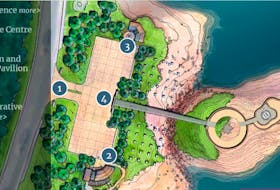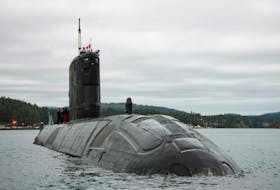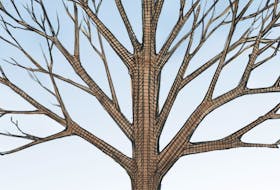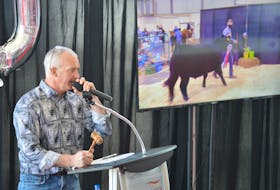It’s a tale of two parties, and they’re both Liberal.
True believers will tell you it’s the best of times, or at least not the worst of times, but there’s no doubt that the times are different under Liberal governments, depending on where you live.
This may be risking a column too far from the Liberal national convention, but the substantive contrasts on display between various Liberal governments is worthy of note, particularly down east.
Any conversation about fiscally conservative governments in Canada would be brief and feature Nova Scotia. PEI or Newfoundland might warrant a mention, but Nova Scotia easily ranks at the top of the heap of frugal Liberal governments, which takes in six provinces plus Ottawa and the Yukon.
Premiers Stephen McNeil and Newfoundland’s Dwight Ball were the only politicians among the dozens who took the stage over the three-day convention to say more than one sentence about public finances. A speech by federal Finance Minister Bill Morneau was remarkable for what he didn’t say, which was anything about the massive deficits he’s running or when he might balance a budget.
Prince Edward Island’s Premier Wade MacLauchlan noted his province, like Nova Scotia, is in the black, and federal Public Safety Minister Ralph Goodale referenced the improving national debt to GDP ratio. Beyond that and except for McNeil and Ball, Liberal pols talked almost exclusively about spending more on social and economic programs or lowering taxes on middle and low-income earners.
Clearly, Liberal governments can be profligate, like Ottawa and Ontario, or parsimonious like Nova Scotia. Some land somewhere in between.
Ball said his government plans to establish a solid financial foundation in Newfoundland but didn’t say when. He’s running a big deficit and has a tough row to hoe, with offshore oil revenues shrinking from more than 35 per cent to just 15 per cent of his revenue. Newfoundland also makes do without federal equalization payments because the math says Newfoundland is a “have” province.
McNeil touted Nova Scotia’s three successive balanced budget and was alone among Liberal leaders to espouse the old-thyme gospel of fiscal probity as the basis for economic growth and sustainable social programs.
There is no doubt that governments willing to run up deficits can give people more stuff. Ontario’s Kathleen Wynne is the best case in point. Although her province is richer, it is also a “have not” like Nova Scotia.
Her Liberals are also in a fight for their political lives, trailing badly in most polls heading toward a June 7th vote. Her government’s running a big deficit and has no plans to balance a budget before 2024.
But kids from families with an annual income of less than $50,000 go to college or university tuition-free in Ontario, as do young New Brunswickers, where free tuition kicks in at $40,000. New Brunswick has a decade-long stack of deficits.
Ontario is adding 30,000 new long-term care beds, offering free prescription coverage to everyone under 25 or over 65, and free pre-school beginning at two-and-a-half.
Newfoundland has the nation’s second lowest tuition rates and Nova Scotia offers free pre-school to kids aged four, but not yet province-wide. For Canadians in the two eastern-most provinces those relatively modest comparisons are about as close as they get to matching Ontarians’ public programs.
East coasters must be wondering how Wynne could possibly be in such deep political trouble given her beneficence to the Ontario electorate.
The main reason is that the Liberals have governed Ontario for 18 years, although Wynne was only elected premier in 2013. Ontario Liberals have served up some nasty scandals over the years and rising power rates more recently. The Tories lead in the polls, but the party delivered Wynne some hope by recently gifting her Doug Ford as their leader. Doug’s the older brother of the late Toronto Mayor and international punch line, Rob Ford, and there are family resemblances.
Somewhere in the constitution that Prime Minister Trudeau’s father Pierre delivered, it says Canadians are all are entitled to roughly the same level of services at basically the same level of taxation, no matter where they live.
That clause has been observed in the breach for 34 years, and it feels like the breach is widening. But also widening is the ideological gap between Liberal governments of the left, in Ontario and Ottawa and the right, best illustrated by Nova Scotia.
Jim Vibert, a journalist and writer for longer than he cares to admit, consulted or worked for five Nova Scotia governments. He now keeps a close and critical eye on provincial and regional powers.








